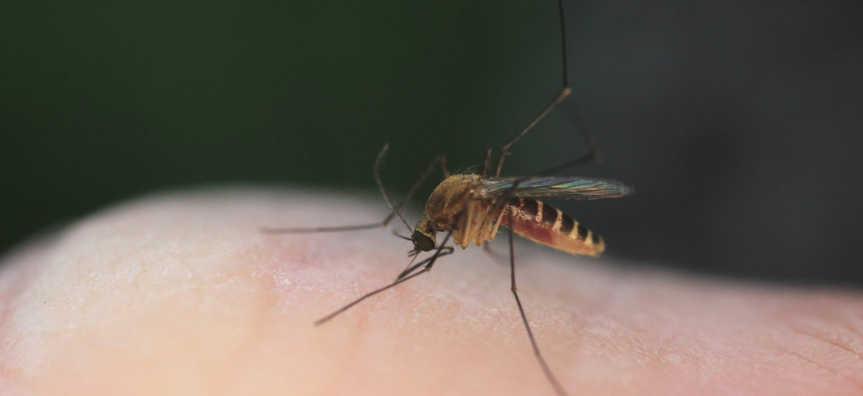
Mosquitoes are a natural part of the local ecosystem. There are more than 300 different species of mosquito in Australia but only a small number of these are of major concern to human health.
In NSW, some species of mosquitoes are responsible for the transmission of Ross River and Barmah Forest viruses. In addition to transmitting these viruses, mosquitoes can cause major disruptions to activities through their persistent nuisance biting.
What is Ross River virus and Barmah Forest virus?
Ross River virus and Barmah Forest virus are transmitted to humans through mosquito bites. Mosquitoes typically bite an infected animal (usually a wallaby or kangaroo) to pick up a virus before transmitting it to a person.
Both viruses cause similar illnesses, including joint inflammation and pain and people of all ages are at risk. The illness is not fatal but can be debilitating.
Protecting the community
Experts from NSW Health have determined the public health and amenity concern associated with mosquitoes on the Northern Beaches will be highly dependent on seasonal climatic conditions. As such Council and NSW Health have introduced an annual proactive trapping program from December to May in potentially high-risk locations including Warriewood Wetlands and Narrabeen Lagoon (Deep Creek).
Monitoring of mosquitoes assists local authorities respond to elevated risk throughout the season. Programs like this allow NSW Health to assess mosquito activity, levels of virus activity, identify species and vector populations on the Northern Beaches.
They can act as early warning systems so authorities can warn the public to take self-protective measures against mosquitoes and consider control measures.
Weekly results of the program can be viewed on the NSW Health website via surveillance.
During the 2024/25 monitoring program Barmah Forest virus was detected at Narrabeen Lagoon, between Deep Creek and Middle Creek in March 2025.
Northern Beaches Mosquito Management Plan
Northern Beaches Council in conjunction with NSW Health developed the Mosquito Management Plan 2020.
The Plan highlights data collected over time from previous mosquito sampling and details management strategies for Council to undertake to better manage the pest and public health risks associated with the local area in a sustainable way that allows for future collaboration with local stakeholders and the community.
How to avoid mosquito bites
- Wear appropriate clothing – minimise the amount of exposed skin by wearing loose-fitting and light-coloured clothing. Long sleeves and pants, as well as covered shoes, is best.
- Apply mosquito repellent to exposed skin – use enough repellent to cover all exposed skin however avoid putting near the eyes and mouth or over open wounds, broken skin, or abrasions. Always follow the product label instructions. The most effective mosquito repellents contain Diethyltoluamide (commonly known as DEET), Picaridin, or “oil of lemon eucalyptus”.
- Be aware of peak mosquito times – mosquitoes are more active at dawn, dusk, and into the evening. They will also be active during the day in heavily shaded areas close to wetlands.
- Keep your home and yard free of standing water where mosquitoes can breed.
For further information please see NSW Health Mosquitoes are a health hazard fact sheet
How to control mosquitoes around the home
Mosquitoes need water to breed and some mosquitoes can breed in very small amounts of water, such as in the water that collects in children’s toys, plant pots and empty cans to name a few. You can reduce the risk of mosquitoes breeding around your home.
- Clean up your backyard and remove all water-holding rubbish, including tyres and containers.
- Keep your lawn mowed.
- Flush and wipe out bird baths and water features once a week.
- Fill pot plant bases with sand to avoid standing water.
- Store anything that can hold water undercover or in a dry place, and keep bins covered.
- Flush out the leaves of water-holding plants such as bromeliads once a week.
- Keep drains and roof guttering clear to avoid standing water.
- Cover or securely screen the openings of septic tanks and rainwater tanks.
- Ensure tarpaulins covering boats or trailers do not collect water.
- Use fly screens on doors, windows and consider screening chimneys, vents, and other entrances.
Properly cleaned and chlorinated swimming pools are rarely a source of mosquito breeding but neglected swimming pools can harbour mosquitoes, especially mostly empty in-ground pools that partially fill following rainfall.
